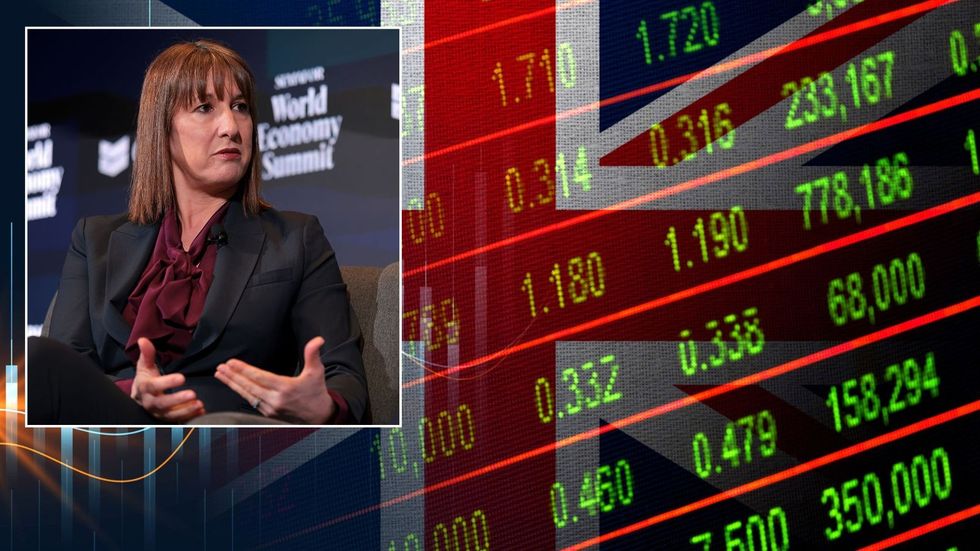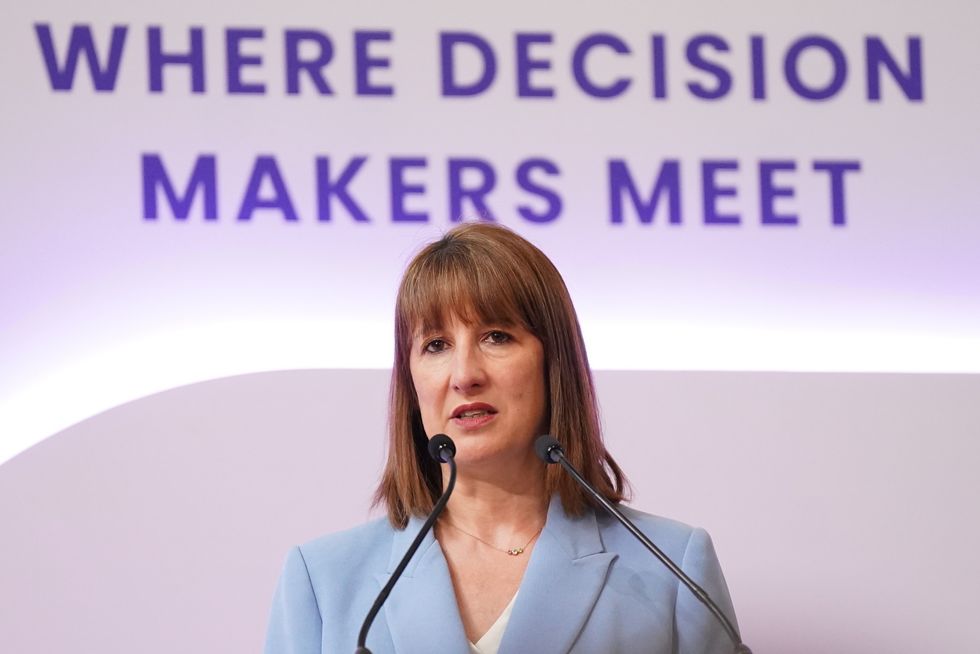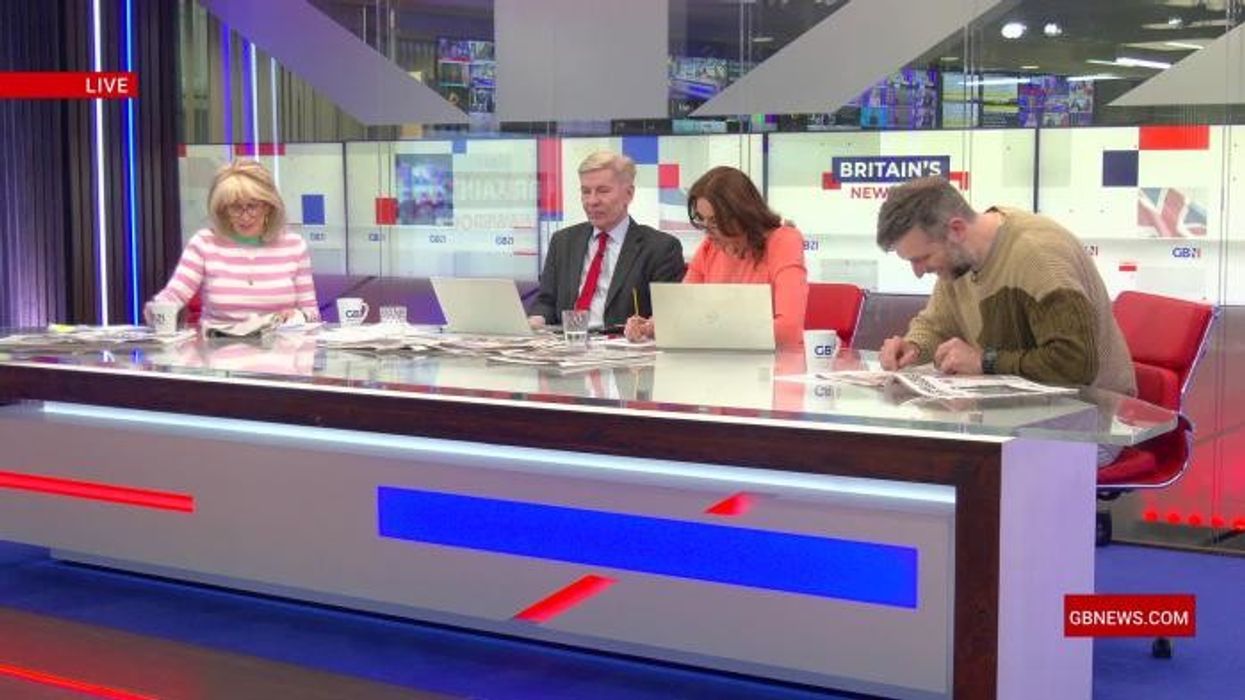REVEALED: Why falling interest rates are unlikely to save Rachel Reeves' chancellorship - and your finances

The Government appears to be crossing its fingers that monetary policy alone can solve structural problems
Don't Miss
Most Read
Latest
The Bank of England is poised to implement what could be the most aggressive series of interest rate cuts since the 2008 financial crisis.
For Rachel Reeves and the Labour government, these cuts represent a potential lifeline for an economy in trouble.
The hope in Whitehall is transparent: lower rates will provide crucial breathing space for households and help manage the Government's massive debt burden.
But this strategy is increasingly looking like wishful thinking.

The Bank of England is poised to implement what could be the most aggressive series of interest rate cuts since the 2008 financial crisis
|Getty
While rate cuts might offer temporary relief to mortgage holders, they cannot address the fundamental weaknesses plaguing Britain's economy.
The Government appears to be crossing its fingers that monetary policy alone can solve structural problems.
Britain's economy is currently flatlining, with stagnant growth showing little sign of improvement.
Government debt has soared to a staggering £2.8 trillion, creating an enormous fiscal challenge.
Productivity remains stubbornly low, hampering competitiveness and wage growth across sectors.
Business confidence is fragile, with companies reluctant to invest despite favourable borrowing conditions, while the tax base is overburdened, with taxes at post-war highs limiting consumer spending power.
These structural weaknesses have created what economist Dr Laura Hughes of Capital Economics describes as "a vicious cycle of low growth and low ambition."
The Institute for Fiscal Studies warns that without difficult decisions, the Government faces "a black hole north of £50 billion."
Rate cuts alone cannot solve these deep-seated problems for several key reasons.
Consumer spending is already exhausted, with real wages barely recovered from inflation and taxes at historic highs.
A modest reduction in borrowing costs won't suddenly unleash household spending.
LATEST DEVELOPMENTS:
Business confidence remains weak despite the prospect of cheaper loans.
With productivity flatlining and energy costs still uncompetitive, companies are hesitant to make significant investments.
While cheaper borrowing might temporarily ease the Government's interest payments, the long-term fiscal outlook remains concerning.
Falling rates might ease the pain for mortgage holders and help service the Government’s £2.8 trillion debt mountain. But rate cuts are a blunt tool – and they cannot paper over the cracks of a structurally weak economy plagued by stagnant growth, chronic underinvestment, and an overburdened tax base.
Even the pace of cuts may disappoint. Thomas Pugh, economist at RSM UK, suggests that while back-to-back rate cuts in May and June are possible, the Bank of England is likely to stick to its quarterly pace unless there’s firm evidence that economic growth is slowing significantly.
He said: “There is a chance of consecutive cuts in May and June, but we think inflationary pressures will keep the MPC on its quarterly path unless there is clear evidence of a downward shift in growth."
Britain's economic challenges are further compounded by growing international pressures.
President Trump's return to office has already sparked concerns about potential trade wars.
Britain's traditional openness to international trade and finance, once considered a strength, now exposes significant vulnerabilities.
Without a robust domestic economic foundation, the UK risks being buffeted by forces beyond its control.
Any monetary policy adjustments must contend with this increasingly challenging global environment.

For Rachel Reeves and the Labour government, these cuts represent a potential lifeline for an economy in trouble
| PAPerhaps most concerning is Labour's apparent lack of a comprehensive economic strategy beyond hoping for monetary intervention.
Beyond vague references to "securonomics," Rachel Reeves has yet to outline a convincing plan for growth, reform or investment.
The Bank of England may act decisively on interest rates, but this monetary sugar rush can only delay economic reckoning, not prevent it.
Jonathan Haskel, who served as an external member of the Bank's monetary policy committee between 2018 and 2024, told The Times there remained "a lot more underlying inflationary pressure" in the UK economy.
He pointed specifically to still-high services inflation and persistent wage growth as areas of concern.
Haskel, now a professor of economics at Imperial College London, suggested the central bank should be very cautious in its approach amid these stubborn inflationary pressures.
Monetary policy alone cannot substitute for the "painful decisions on spending or tax" that experts warn are inevitable.
The Bank of England's expected rate cuts may bring a momentary flicker of relief to struggling mortgage holders.
They might temporarily ease the Government's debt servicing costs. But this monetary intervention cannot address Britain's fundamental economic weaknesses.











